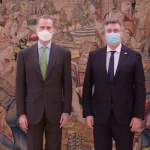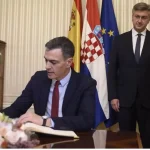The Croatian and Spanish science ministers, Radovan Fuchs and Diana Morant, respectively, signed in Madrid on Wednesday an agreement green-lighting the DONES (Demo Oriented Neutron Source) project.
The EU wants to build the first demo power plant where electricity will be produced by the fusion of two lighter hydrogen atoms into a heavier one that releases huge amounts of energy. Currently, materials used to build power plants are unable to withstand such high temperatures and radiation.
In order for the construction of the first demo plant to begin in 2035, it is necessary to find the required construction materials.
“Croatia and Spain will examine materials from which fusion reactors should be made in the future… because we are talking about high intensity radiation,” Fuchs told Hina.
Croatia and Spain agreed in 2018 to examine the materials together as part of the DONES project. A facility will be built in Granada, Spain and local scientists will work together with colleagues from Zagreb’s Ruđer Bošković Institute.
Fuchs said the project was worth €400 million and that Croatia would participate with €30 million, the rest coming from Spain.
“This opens a whole range of possibilities for the participation of high tech companies building such experimental plants,” he said, adding that Croatian companies are interested, too.
Fuchs visited Madrid as part of a Croatian delegation led by Prime Minister Andrej Plenković, who met with his Spanish counterpart Pedro Sánchez, who mentioned the future cooperation on this project at a joint press conference.
Fuchs said today’s agreement was just the start of the whole story and that the project “begins in two or three weeks. There will be intensive traffic between Granada and Zagreb.”
Croatia and Spain were among the countries that applied for the DONES project, submitting the documents required to the EU Fusion for Energy (F4E) body.
An F4E task force assessed that the locations the two countries proposed for the project, Spain’s Granada and Croatia’s in the Moslavina region, were both suitable but that Granada was more ready as a vacant technological park. The Moslavina location, an empty building site, serves as a backup location.
The Spanish Science Ministry said that since 2018, when the cooperation was agreed, Spain and Croatia had participated together in several European projects as part of the EUROfusion project.
“This is yet another step in the science cooperation between Spain and Croatia”, said Minister Morant.
The ministry said the construction of the facility in Granada would create 1,000 jobs, including for 400 top scientists from all over the world.
For more, check out our politics section.











